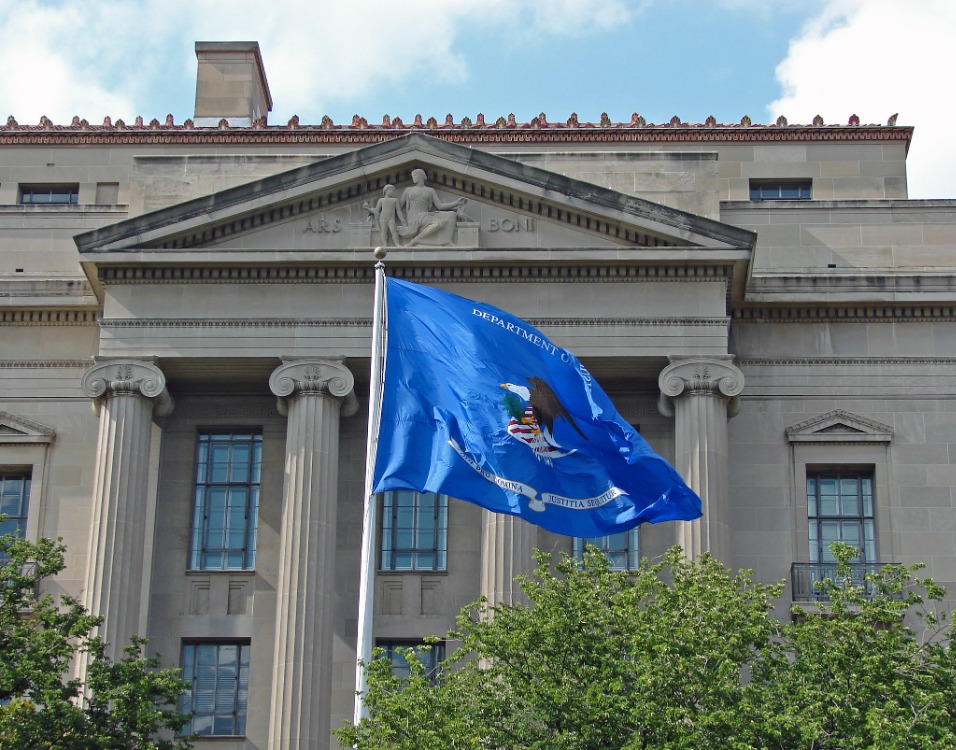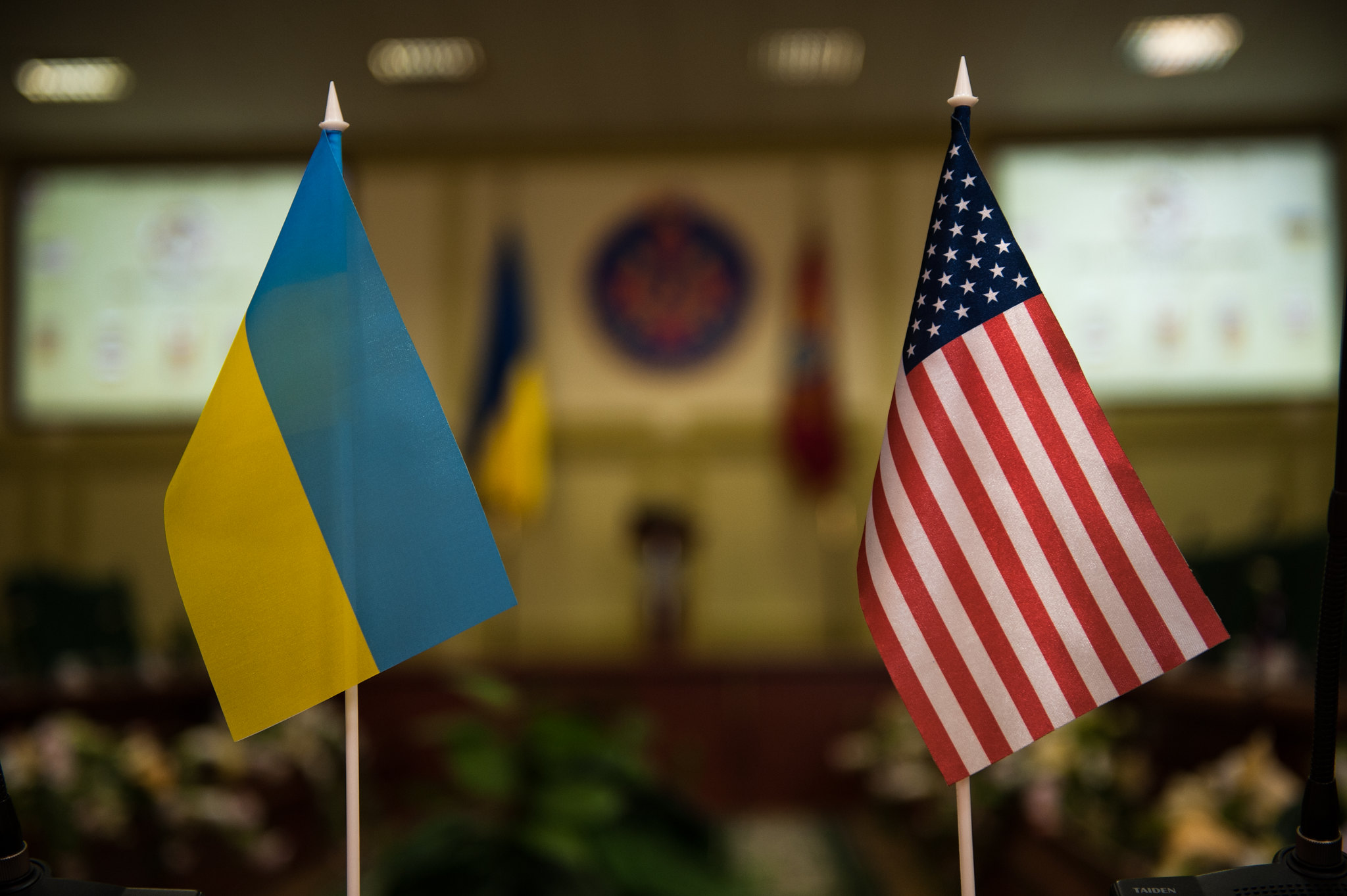The Chagos Archipelago Dispute: Law, Diplomacy and Military Basing
What’s the international significance of the dispute over the Chagos Archipelago?

November 2020 will mark the one-year anniversary when the United Kingdom should have left the Chagos Archipelago in the Indian Ocean, as ordered by a U.N. General Assembly resolution. In a resounding vote of 116-6 (with 56 abstentions), the resolution announced that the General Assembly “welcomes” the February 2019 International Court of Justice (ICJ) advisory opinion that found Mauritius was not able to complete its decolonization from the U.K. This long-simmering dispute between Mauritius and the U.K. has gone largely unnoticed in Washington, which is surprising given the importance of the Diego Garcia military base in the Chagos Archipelago, the significance for U.S. global basing requirements, and the relevance for policy decisions in the South China Sea.
Particularly at a moment of expanding great power competition, U.S. policymakers should recognize the strategic implications of ongoing legal decisions related to the archipelago.
Law and Diplomacy in the Chagos Archipelago
In a testament to the strength of international law and diplomacy, Mauritius has successfully challenged the U.K. in legal forums and institutions, such as the African Union. As a small state, it has relied on the tools of international law and diplomacy to confront a major power. Like many countries in the region, Mauritius has a history of being colonized by European powers such as Portugal, the Netherlands and France. U.K. colonial administration lasted for roughly 150 years until Mauritius gained independence in 1968.
In 2015, Mauritius took the U.K. to arbitration over its establishment of a marine protected area around the Chagos Archipelago. A panel of arbitrators operating under the auspices of the Permanent Court of Arbitration (PCA) found that the U.K. “breached its obligations under Articles 2(3), 56(2), and 194(4)” of the U.N. Convention on the Law of the Sea (UNCLOS) and that its declaration of the marine protected area “was not in accordance with the provisions of the Convention.” While not a U.N. agency like the ICJ, the PCA helps resolve bilateral disputes, particularly high-profile ones under Annex VII to UNCLOS. Using international diplomatic venues, Mauritius was later able to secure the 2017 U.N. General Assembly Resolution 71/292, which asked the ICJ to examine the Chagos dispute. In February 2019, the ICJ issued an advisory opinion in favor of Mauritius, finding “the process of decolonization of Mauritius was not lawfully completed” when the country became independent in 1968. The ICJ determined that the U.K. “is under an obligation” to end its administration of the Chagos “as rapidly as possible.” In May 2019, the U.N. General Assembly resolution backed the ICJ finding and was striking that it “demands” the U.K. withdrawal within a deadline of six months, meaning November 2019. Based on these actions, the U.N. world map has been revised and no longer features the British Indian Ocean Territory, but shows the Chagos Archipelago under Mauritian sovereignty.
These cases highlight the role of international law, but also its limitations. The 2015 PCA decision was binding on the U.K., as a signatory to UNCLOS. But the U.K. has pushed back on other judicial developments in the case. Its main legal argument is that the ICJ and U.N. General Assembly “are not the appropriate fora” for bilateral sovereignty dispute resolution. In making this argument, the U.K. has attempted to highlight that it did not consent to the ICJ’s jurisdiction.
Those objections have had tangible consequences in the Chagos dispute. After the May 2019 General Assembly vote, the U.K. reasserted its claim that it has had sovereignty over the Chagos Archipelago since 1814 and reiterated its promise to cede the territory only “when it is no longer needed for defence purposes.” In 2020, the U.K. repeated its arguments, stating that a “fundamental principle of international law and the international legal order is that of consent.” Because the U.K. did not consent to the ICJ hearing the case, London found this to be “an inappropriate use” of the ICJ’s advisory opinion and minimized the opinion as “not legally binding.”
Despite the U.N. General Assembly’s call for a withdrawal by November 2019, the U.K. has taken no action to satisfy the ICJ’s opinion or comply with the U.N. General Assembly resolution. This lag has raised questions about the utility of multilateral institutions and international legal decisions—Mauritius has won a legal battle, but it led to little material change. The episode thus offers a stark reminder that military presence still retains power over legal and diplomatic norms.
Implications
The U.K.’s inaction in the face of clear legal and diplomatic decisions has particular importance at this geopolitical moment, in an era in which Western powers such as the U.S. seek to draw clear boundaries between countries that adhere to international norms and those that do not. Of particular relevance to the case is the status of the Chagossians. They were expelled from the British Indian Ocean Territory to make space for the base. The public attention to resolving their resettlement is a key driver of the issue for the Mauritius government. The Chagossians are mentioned regularly in U.K. statements on the dispute for London’s “deep regret” over their treatment.
It is possible that observers might find the consent argument to be a legitimate stance for the U.K. to take. The argument is, after all, also endorsed by the U.S., which supports its closest ally in the case. However, Washington and London should be alert to the potential appearance of tensions between their policies in the Chagos Archipelago and the South China Sea.
Under the Obama administration, the U.S. expressed its support for the rule of law and territorial and maritime dispute resolution after the 2016 decision by a PCA arbitral tribunal involving China and the Philippines—another relatively small country taking on a major power in an international legal venue. Under the Trump administration, Secretary of State Mike Pompeo added more detail to the U.S. position in July 2020 and repeated that “the Arbitral Tribunal’s decision is final and legally binding on both parties.” Washington made this argument with regard to China—although China was not present at the arbitration—but appears to be applying a different standard to the U.K.
The U.K.’s stance likewise seems to be at odds with its calls for greater adherence to international law. London, for example, has called on China to respect international rules and norms in the South China Sea and has cited international law when sending the Royal Navy to the area in 2018, exercising its “rights for freedom of navigation in full compliance with international law and norms.” The U.K.’s new aircraft carrier, HMS Queen Elizabeth, is expected to make a freedom of navigation operation next year in the South China Sea as part of its first voyage. The U.K. has also called for “action to oppose those who flout international law” in an era of great power competition.
Yes, there can be legitimate disagreements over the use of the PCA as opposed to the ICJ to pursue bilateral dispute resolution. However, great power competitors that are increasingly proficient in information warfare will take special efforts to exploit apparent tensions in nuanced arguments. The Russian Federation, for example, provided its position on the Chagos dispute in May 2020 when it called on the U.K. “to comply with General Assembly resolution 73/295 and complete the decolonization of Mauritius.” By emphasizing alignment with Mauritius and other countries in the Non-Aligned Movement, Russia appeared to invoke a theme reminiscent of the Cold War. In an era of great power competition, U.S. and allied calls to uphold the international order may be undermined by the current U.K. and U.S. stance in the Chagos dispute. Observers have already noted the appearance of hypocrisy in the U.K. statement to China on human rights in Xinjiang and Hong Kong this summer.
Way Ahead for the U.S.
Before the U.S. agreement with the U.K. for access to Diego Garcia expires in 2036, there is time for the U.K. to adjust its stance with regard to recent developments in the dispute with Mauritius. Of course, the U.K. derives some benefits from claiming the Chagos, including membership in regional institutions such as the Indian Ocean Rim Association and Indian Ocean Naval Symposium. This may be especially salient given London’s vision for a “Global Britain.” However, the benefits of the U.K.’s holding on to the Chagos Islands may be only marginal and likely are outweighed by the potential costs to the U.S.
As the U.K.’s closest ally, Washington has stood by London in its sovereignty claim to the British Indian Ocean Territory. However, encouraging the U.K. to back off its claim may make the legal and diplomatic environment easier for the U.S. as it attempts to draw a clear contrast between the U.S. economic and political model and the alternative offered by China and Russia. Avoiding bad optics and adopting a consistent position may be more valuable to the U.S. than a reflexive backing of a close ally’s colonial claim.
U.S. basing interests around the world are also increasingly important in the current era of great power competition. Access to Diego Garcia will continue to be vital for operations westward in the Middle East, which has included combat over the past 30 years, as well as eastward in the Pacific. Mauritius has stated at the U.N. its willingness to permit the “continued operation of the Diego García base once it has effective control over the Archipelago.” Furthermore, Mauritius’s permanent representative to the U.N. has conveyed his government’s offer of a 99-year lease for Diego Garcia to the U.S., which extends beyond the current agreement with the U.K. that expires in 2036. Given that Washington has already secured numerous global basing arrangements with countries that are not allies like the U.K., obtaining a bilateral or trilateral arrangement with Mauritius is an option for the U.S.
The Chagos case should not have negative implications for U.S. access to other British bases when needed. For example, U.K. military forces are based in Gibraltar at the entrance to the Mediterranean Sea and in the Falkland Islands in the South Atlantic. Populations in both the Falkland Islands and Gibraltar have demonstrated their desire to remain as U.K. territories. Finally, India is no longer opposed to the U.S. presence in Diego Garcia, due to its rising threat perceptions of China in the Indian Ocean. Given its significant role in contributing to Mauritius’s defense capability, India can be a key enabler for U.S. strategic and operational interests as Washington considers its options with regard to both the U.K. and Mauritius.
Maintaining the status quo through 2036 may no longer be a viable option for Washington in Diego Garcia. Mauritius’s series of legal and diplomatic victories and unrelenting drive to win uncontested sovereignty of the Chagos Archipelago suggest that the clock may be running out for the U.K., and by extension the U.S., in Diego Garcia. While reaching a bilateral agreement with Mauritius or a trilateral one involving the U.K. would require some upfront effort in the short term, the more difficult campaign will be great power competition over the coming decades. Preserving operational access to Diego Garcia while also supporting the case for the primacy of the U.S. economic and political model should be a priority for Washington policymakers in the 2020s.




.jpg?sfvrsn=31790602_7)
